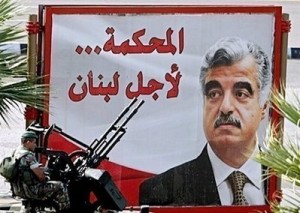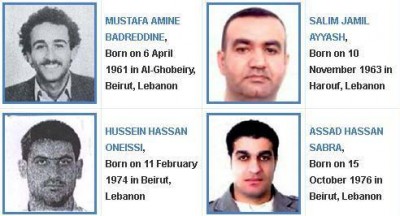 The U.N.-backed Special Tribunal for Lebanon, set up to try the suspected killers of Lebanon’s former prime minister Rafik al-Hariri, has a political agenda and should not conduct the trial, a defense lawyer for one of the suspects said on Wednesday.
The U.N.-backed Special Tribunal for Lebanon, set up to try the suspected killers of Lebanon’s former prime minister Rafik al-Hariri, has a political agenda and should not conduct the trial, a defense lawyer for one of the suspects said on Wednesday.
Five years after it was set up by an agreement between Lebanon and the U.N. Security Council, the court convened for two days of hearings to decide if it was the right venue for the trial in absentia of four men accused of killing Hariri in 2005.
Despite many requests since the suspects were indicted in June 2011, they have not been surrendered, and the Lebanese government has told the court they cannot be found.
The four men are members of Hezbollah, a Shi’ite political party and guerrilla group that remains powerful in Lebanon.

They include Mustafa Amine Badreddine, a senior Hezbollah figure and brother-in-law of slain Hezbollah commander Imad Moughniyeh.
Antoine Korkmaz, a defense lawyer appointed to represent Badreddine, said The Hague-based tribunal had been created illegally by the Security Council and was interfering with the domestic politics of Lebanon.
The court had been set up “to ensure the success of one political faction within Lebanon,” Korkmaz told the hearing.
The court was set up “for the benefit of certain parties surrounding the former Lebanese prime minister, to whom certain Security Council members wanted to do a service,” he added.
Billionaire politician Hariri and 21 others were killed in a car bombing in February 2005. The killing plunged Lebanon into a political crisis that saw assassinations and street clashes in May 2008, dragging the civil war-scarred country back to the brink of conflict.
Though the courtroom was packed with the four judges, the prosecution and four separate defense teams, the accused were absent from the windowless former basketball court.
Hezbollah has said the court is “conspiratorial”, and biased towards U.S. and Israeli interests. It has opposed any attempt to locate the four accused in order to extradite them.
During a hearing that was dominated by dense technical exchanges over interpretations of the court’s statute, the prosecution said only the Lebanese state could challenge the court’s standing.
“The Republic of Lebanon has never raised this matter before this Tribunal or the Security Council,” said Daryl Mundis, a prosecutor at the tribunal.
The hearings will continue on Thursday with representations from the victims of the bombing. A ruling on the court’s jurisdiction is expected before the end of July.
Reuters

Leave a Reply
You must be logged in to post a comment.